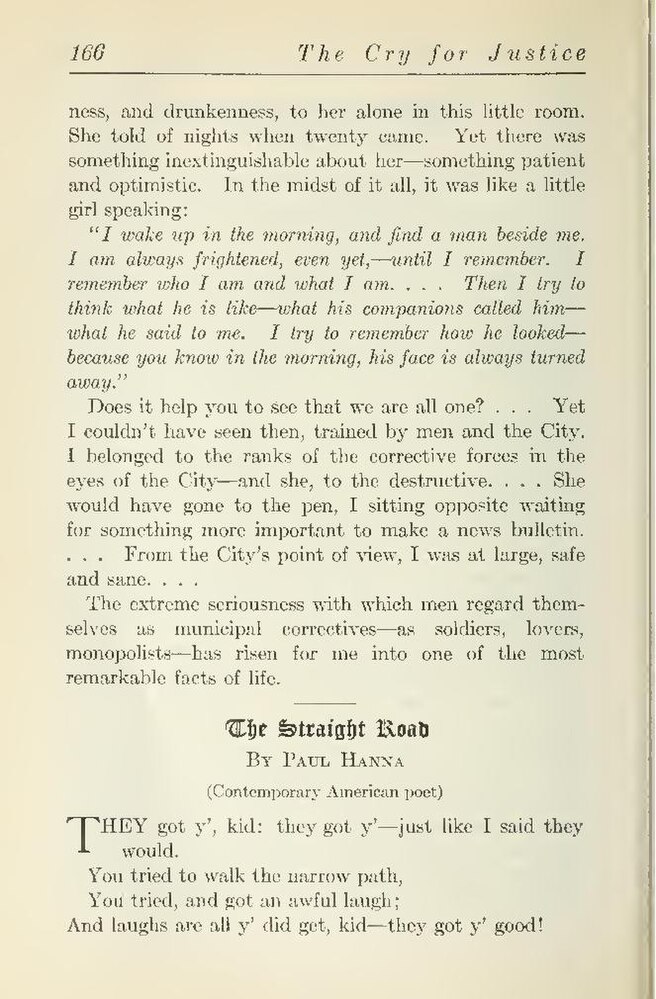- ness, and drunkenness, to her alone in this little room.
She told of nights when twenty came. Yet there was something inextinguishable about her—something patient and optimistic. In the midst of it all, it was like a little girl speaking:
"I wake up in the morning, and find a man beside me. I am always frightened, even yet,—until I remember. I remember who I am and what I am. . . . Then I try to think what he is like—what his companions called him—what he said to me. I try to remember how he looked—because you know in the morning, his face is always turned away."
Does it help you to see that we are all one?. . . Yet I couldn't have seen then, trained by men and the City. I belonged to the ranks of the corrective forces in the eyes of the City—and she, to the destructive. . . . She would have gone to the pen, I sitting opposite waiting for something more important to make a news bulletin. . . . From the City's point of view, I was at large, safe and sane. . . .
The extreme seriousness with which men regard themselves as municipal correctives—as soldiers, lovers, monopolists—has risen for me into one of the most remarkable facts of life.
The Straight Road
By Paul Hanna
(Contemporary American poet)
They got y', kid: they got y'—just like I said they would.
You tried to walk the narrow path,
You tried, and got an awful laugh;
And laughs are all y' did get, kid—they got y' good!
